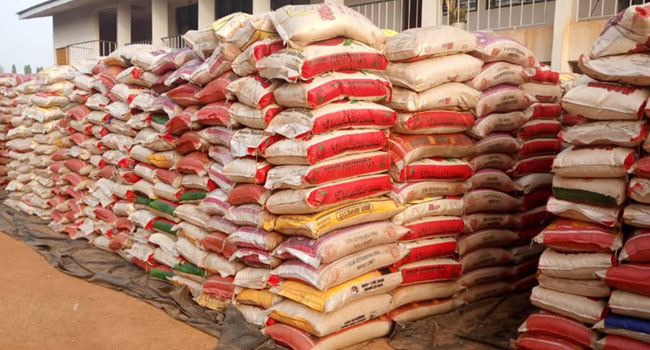The unprecedented increase in the prices of commodities in Nigeria has caused nationwide hardship, with residents of some major cities taking to the streets to register their grievances.
Families have had to adopt bizarre cost-cutting measures to cope with the recent hardship occasioned by the dramatic hike in the prices of goods and services.
Several of them lamented that their income could no longer take care of their daily needs, adding that the prices of staples had almost tripled in the market. Rice, which is arguably one of the commonest consumed staples in the country, has risen to N77,000 per bag.
In December, the National Bureau of Statistics stated that the country’s inflation rate hit a 27-year high as headline inflation rose to 28.9 per cent.
The December headline inflation rate showed an increase of 0.72 percent when compared to the previous month’s rate.
In recent years, food prices have been on the rise across Nigeria. The situation deteriorated due to the impact of government policies such as the removal of subsidy on petrol and the free fall of the naira in the foreign exchange market.
Foodstuffs sellers in major cities lamented that the cost of a bag of rice had risen almost 200 per cent.
It was gathered that long grain rice, which used to sell for between N45,000 and N50,000 in November, now costs over N70,000, putting a huge pressure on the consumers.
From Kano to Niger, Rivers to and Osun, residents protested the hardship on the streets.
In Niger State, for instance, residents of Suleja took to the street last Wednesday to register their displeasure over the high cost of living in the country.
Wednesday’s protest came two days after a similar protest in Minna, the state capital.
The Organised Labour on Friday insisted on embarking on an industrial action to register its displeasure over the current economic hardship in the country.
Although the Federal Government has ordered the distribution of grains and other items to cushion the effects of the economic crisis across the country, citizens are still grappling with the hike in the prices of commodities.
In Lagos, some residents lamented that the incessant increase in the prices of foodstuffs had strained their finances.
This is as they urged the government to intervene before things got out of hand.
A mother of two, Mrs Mede Orunmade, said this present situation had made life unbearable for her and her family.
Orunmade stated that it was as though the country was at war, adding that the hike in the prices of foodstuffs was continuous.
She said, “It has been a hard time for me and my family. The country hasn’t been in the right position for the past eight months. I have been struggling with my family to clear up our electricity bills. Coupled with the ever-rising price of foodstuffs, I don’t know if I am going to survive.
“I used to operate an online business but it has packed up. There’s no gain on any business in Nigeria like before anymore. I am just striving to survive.
“The surprising thing is that a small carton of noodles is now N7,000 to N7,800. We used to buy it for between N1,900 and N2,000 in the past. It is so shocking that the price of a bag of rice continues to change almost every minute.
“A bag of rice five months ago was around N49,000, but it increased to N68,000. As of yesterday (Thursday), my supplier said it had risen to N70,000. The cheapest thing we used to buy before, garri, is now N2,500 for a paint bucket. It was N800 before.”
Another Lagos resident and father of four, Mr Taiwo Babatunde, said he could no longer afford to feed his family like he used to.
He asked the government to come to her aid, as her suffering was becoming too much.
A housewife simply identified as Wunmi said, “The government needs to come to our aid now as everything is very hard. A bag of beans is now N65,000, which is three times the price it used to be. Also, groundnut oil is now N8,400 for four litres, and a bag of rice is now N70,000.
“This is getting too much. We hope the government will come to help us.”
Further findings revealed that a kilogramme of Semovita, which sold for N800 four months ago, now sells for N1,200.






